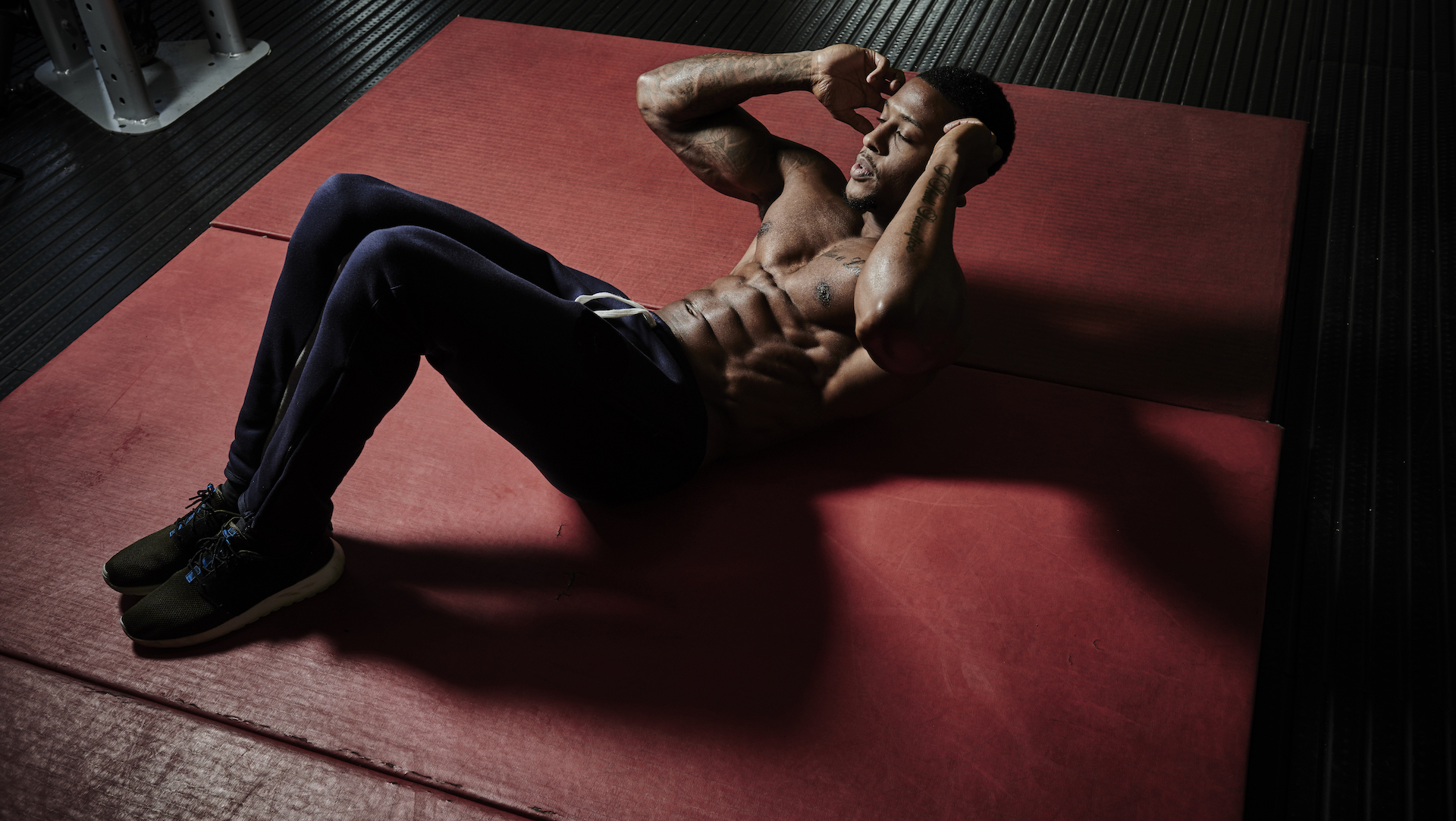How to bulk up fast: pile on muscle and carve out a rippling body
Ever wondered what should be on your shopping list if you're looking to pack on muscle? We've asked an expert to explain exactly what you need to do to beef up


Get all the latest news, reviews, deals and buying guides on gorgeous tech, home and active products from the T3 experts
You are now subscribed
Your newsletter sign-up was successful
Head to Instagram, search for 'fitness model' and be prepared to do battle with the green eyed monster, as image after image of irritatingly 'shredded' individuals fill the screen of your smartphone.
Flabby dudes want to torch fat and reveal the six pack that thrives underneath, while skinny guys wish to step on the scales and see the numbers creep up, as muscle is piled on with gay abandon.

Mix up your sources of protein
If you fall into the latter "grass is always greener" camp, it's highly likely that you have an epically rapid metabolism (lucky you) and you find it difficult to keep on the weight required to build the sort of muscles you want to grease up and reveal at a beach.
Aside from the prerequisite fitness regime, you'll also need to get busy in the kitchen, as solid nutrition is key to building the dream body.
But simply stuffing your face with protein-rich foods isn't enough to win you a place on next year's Mr Universe campaign, because you'll also have to put in the effort in the gym (or at home, if you're lucky enough to own the correct fitness kit).
We've got a great selection of workouts below, which cover everything from sessions that assist absolute beginners, to more advanced regimes that target specific body parts.
Take a look at the list below and then follow the advice of our expert Josh Dyson, who is a performance nutritionist at the Manchester Institute of Health & Performance (MIHP).
Get all the latest news, reviews, deals and buying guides on gorgeous tech, home and active products from the T3 experts
What foods will help add muscle quickly and why?
"Firstly, I feel it is important for me to manage expectations," says Josh. "The rate at which muscle gain may occur will vary amongst individuals depending upon many things, including training status (novice, intermediate, advanced), age, sex, genetic potential, training programme design and nutritional intake," he adds.
But to build muscle, Josh says it is important to ensure sufficient energy intake, as building muscle is an energy costly process, and to optimise protein intake with high quality protein foods that are rich in essential amino acids.
Your shopping basket should include "quality protein options", as Josh puts it, that are rich in essential amino acids, the protein building blocks required via the diet.
This should include chicken, turkey, beef, pork, lamb, fish, eggs and dairy (e.g. Greek yogurt, milk, cottage cheese, quark).
For all the veggies out there, consider complete protein sources like soy, quinoa and Quorn. Alternatively, combine sources to build complete proteins with beans, peas, lentils and the like.

Red meat is a solid source of protein
What foods should be avoided during training?
This part may seem obvious, but building muscle requires the right kind of fuel and that will typically involve cutting out all of the bad (read fun) stuff that occasionally appears on the dinner table.
"Avoid processed foods that are typically high in calories, low in nutrient density and not very satiating," says Josh.
"On top of this, limiting fatty take-aways and curbing excessive alcohol consumption is also a smart move to avoid excessive energy intake.
"Additionally, on a non-training day, a consideration may be to reduce carbohydrate intake, as expenditure demands are reduced, therefore not requiring such intakes as on a training day," he adds.
You also need to remember that nutrition alone won't add muscle, you need to be working out to make the most of the advice listed above and below.
"The additional weight gain from chronically eating a calorie surplus (more than your total energy expenditure needs) without training will result in increased fat gain," Josh explains.
"For muscle gain, you require the stimulus of resistance training. Resistance training makes the muscle more sensitive to protein feeding, which further potentiates the muscle building response. It is the repeated accumulation of a resistance training stimulus, protein consumption and periods of positive protein balance (muscle protein synthesis greater than muscle protein breakdown) that brings about muscle gain," he adds.

Cutting down on sugar will help reduce your waistline
Ok, gimme a rough guide to protein and carb intake...
For those very new to resistance training or returning to it from a long hiatus, it's easier to gain muscle and lose fat so long as the energy intake (that's your calories or kcal) is less than the expenditure.
The same applies for the slightly more rotund readers out there: you're going to shed fat and build muscle faster than the more experienced gym-going crew.
"For those more intermediate and advanced trainees, an energy surplus is required to build muscle," Josh explains.
"A typical daily surplus should be around 500kcal above maintenance (this would roughly increase body mass by 0.5kg per week). For leaner individuals worried about fat gain, a smaller daily surplus may be implemented of around 200-300kcal," he says.
Ok, so that's your calories roughly sorted, but what about protein? Josh states that a rough guide sees between 1.6-2.2g of protein per kg of body mass.
This can be extended to roughly 3g of protein per kg of body mass for those working stupidly hard in the gym.
"As a loose guide, each meal or snack should contain around 0.4g of protein per kg of body mass, which will roughly equate to 20-40g per snack or meal depending upon an individual’s body mass.
"Aim to chow down on a protein rich food every 3-5 hours when training. A higher pre-sleep casein protein feeding of 0.5-0.6g per kg of body mass may also be considered for those looking to leave nothing on the table in the pursuit of muscle gain," he adds.
One of the best ways to get an overnight hit of the good stuff is with a high quality, casein-rich protein shake.
Also, don't forget about carbohydrates, as they are important to fuel high intensity training due to the glycogen depleting nature of heavy resistance training required for muscle gain.
"Daily carbohydrate may range between 4-7g per kg of body mass for strength trainees, depending upon their training volume, training schedule and personal preferences," says Josh.
"Intake could, however, be lower than this on non-training days if those individuals are also looking to reduce the chances of putting on any excess weight," he adds.

Keep it healthy and see results
Struggling to eat enough? Maybe you need some dietary supplements
Any good nutritionist will aim to cram as much of your recommended daily intake into your body via high quality, natural and healthy foods, but sometimes it's difficult to eat a freshly prepared meal or snack up to six times a day.
In this case, may individuals turn to supplements in the form of shakes, snack bars and pills in order to get the correct amount of protein, carbohydrates and other muscle-building nutrients into the body.
Josh explains some of the most popular below:
1. Whey Protein - This is a high quality protein source that can be an additional option for those struggling to meet daily protein intakes. For vegetarian trainees, they may opt for a plant-based protein supplement like pea, brown rice or soy protein, which are widely available in shakes and snacks.
2. Casein Protein - Another high quality source that can provide additional protein for those struggling to meet daily intakes. Such a protein source is typically ingested in the evening, 1-3 hours prior to sleep, due to its slow release nature, therefore providing a supply of amino acids for muscle building whilst sleeping.
3. Creatine Monohydrate - This aids short-term repeated bout activity and will therefore enhance physical performance at the gym, meaning you can bust out more reps, for example. This will also aid progressive training overload (piling on the weight each week) and the end goal of muscle growth. You'll find this in a number of protein shake products or in pill form at most health outlets.
As a final word of advice, Josh warns individuals to be wary of any supplement with exaggerated claims. "After all, an individual can get great returns on their efforts by simply optimising dietary intake and training," he says.
There are also a bunch of new meal replacement shakes that aim to offer a balance of protein, carbs, fats and vitamins that can be sunk in a single drink.
We checked out one of the biggest names in the meal replacement game, Huel, in this feature.
Leon has been writing about automotive and consumer tech for longer than he cares to divulge. When he’s not testing the latest fitness wearable and action camera, he’s out in a shed fawning over his motorcycles or trying not to kill himself on a mountain bike/surfboard/other extreme thing. He's also a man who knows his tools, and he's provided much of T3's drills coverage over the years, all without injuring himself.
